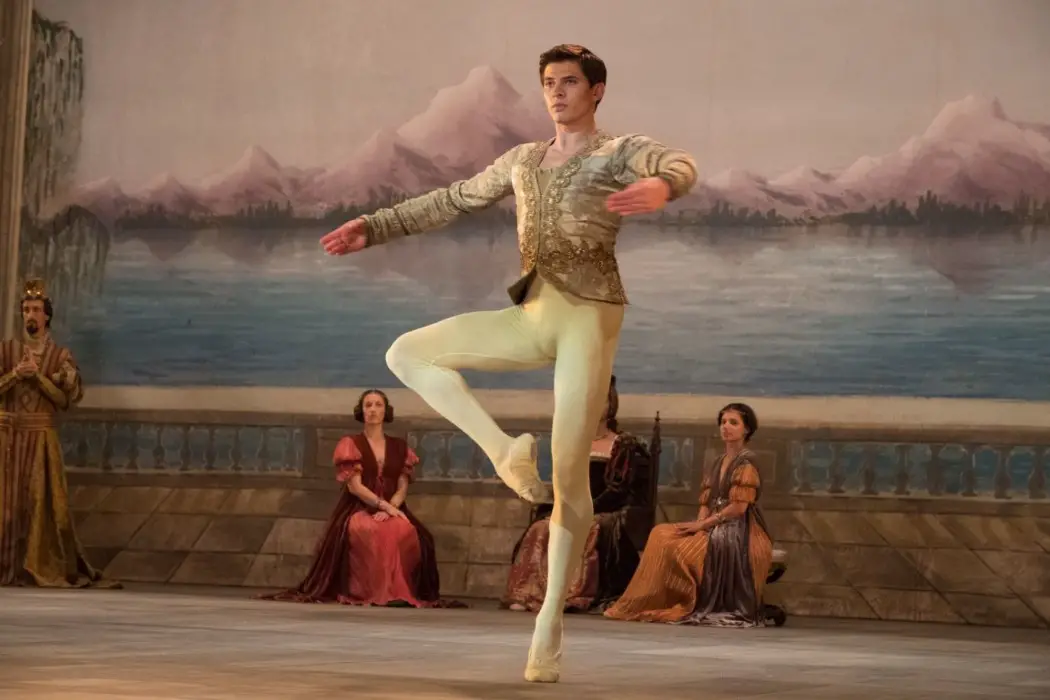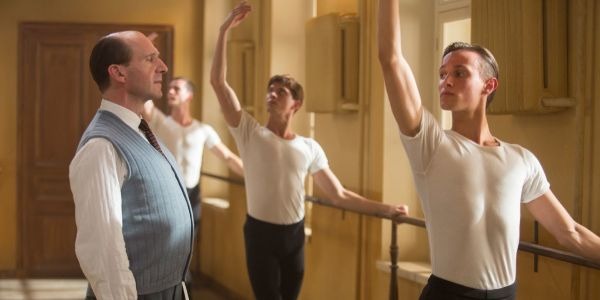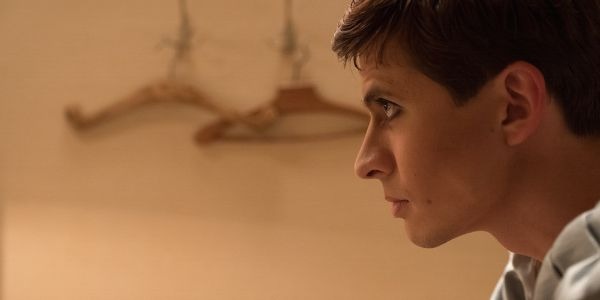THE WHITE CROW: This Is No Black Swan

I'm a geeky, yet lovable film fan who adores horror…
Who doesn’t love the ballet? If you haven’t seen Swan Lake, you haven’t lived. Ballet is one of the highest forms of art; it’s the perfect harmony of the body, music and performance. A ballet dancer’s body is strong and stable; they are the perfect human specimen, their bodies the ideal shape seen but never possessed by us regular couch potatoes. They strive for perfection by twisting their bodies into unnatural poses and making it seem effortless, as if their bodies were light as feathers. While in fact underneath the perfectly contoured faces, leotards and pointed toes, the body is bruised and ugly, aching and sore. On the surface, a dancer is beautiful but beneath it all lies the ugly truth.
Rudolf Nureyev was a famous Russian ballet dancer who scandalously defected to the West in 1961. Often cited as the most talented male ballet dancer of his time, Nureyev was the IT boy of ballet in the late 50s and early 60s, earning a reputation for being exceptionally difficult but undeniably talented and passionate. Starting from nothing and climbing the ranks just by talent and hard work alone (gasp!) he’s the Cinderella in tights and ballet shoes.
A Pas De Bourree here, A Pirouette There
Ralph Fiennes is flexing his directorial muscles in his adaptation of Nureyev’s story, or at least parts of his story. Fiennes’ film is told in a non-linear manner but the story is fairly simple and pretty easy to follow, but more on this later. A young Nureyev falls in love with ballet, trains, is told he’s not good enough and trains more. He lacks the technicality other dancers possess but makes up for it with his never-ending passion. His grand jetes are higher, his pirouttes more focused, his plies deeper, every one of his moves more powerful than those of his fellow dancers, but not because his leg muscles are more developed or stronger; Nureyev simply wills himself to go further, powering his body with sheer ambition.
The film takes largely place in Paris where Nureyev and his fellow dancers travel. Nureyev becomes the tabloids’ favourite cover boy with his late night socialising and the Soviet Union isn’t happy with this, initially banning the dancers from interacting with anyone but fellow socialists. Nureyev, born to be an anarchist of sorts, defies his home country and is faced with a choice; leave Paris and face uncertainty or stay and defect, effectively abandoning his home country?

I am not an actor, I have never dabbled in acting. Nor am I really a director either. I began my film studies thinking I was the next female Steven Spielberg but soon realised filmmaking as a craft was too stressful and financially unstable for me to pursue. I can’t pretend to ever understand what it really takes to be either really. I will never understand why an actor turned director would insert themselves into the picture. Is it ego? Is it narcissism? Why must so many directors direct themselves in a motion picture? What makes them think they are the best person for the job, how do they objectively analyse their performance from both point of view, one of the director’s and one of the actor’s?
Fiennes is an odd fit here, playing Nureyev’s dance instructor and mentor Pushkin. He’s never bad per se, but out of place, especially when the script requires him to speak Russian. His sentences are short and vague in content. He’s more a presence than an active character in Nureyev’s story, constantly lurking in the shadows of the ballet studio. He also seems to be the only one who realises Nureyev’s brilliance when others just see him as a peasant boy.
The Bad Boy Of Ballet
If Fiennes is the odd one out, Oleg Ivenko is fantastic. Dedicated and focused, he transforms into Nureyev, even when the script might make it difficult. It’s a fearless performance; Ivenko embraces the character’s flaw and general unpleasantness and just runs with it. While it’s hard to root for the character, it makes for an interesting viewing. Ivenko’s Nureyev is uncompromising, arrogant and passionate. It’s a shame David Hare’s script fails to make the character likable.
While the film is exceptional in its’ dance sequences, fully showcasing Ivenko’s skills as a dancer, it somehow leaves a bad taste in your mouth. It seems that Fiennes and Hare just assume you know why Nureyev would defect, as if it’s a fact, as if anyone would do this. But the facts need to be stated. The final scene in the airport is a tense and somewhat terrifying ordeal and Fiennes’ filmmaking skills really shine here as does editor Barney Pilling’s. The scene alone isn’t enough to establish the real threat Nureyev faced or his reasons to defect.
The film’s structure is also a bit of a headscratcher. While everyone loves a non-linear narrative, it doesn’t mean it should always be utilised when telling a story that stretches through some years in the main character’s life. While the narrative is predictable enough and thus easy to follow, the timeline often becomes muddled. There aren’t any visible differences to Nureyev and events take place close enough to one another that it’s hard to justify using a non-linear approach to the story. The structure is at its most efficient when highlighting the poor conditions of Nureyev’s childhood, but not so much when Fiennes still insists on jumping back and forth in Nureyev’s later years.

The White Crow’s biggest problem is Fiennes’ inability to make Nureyev a pleasant protagonist. Or even an antihero. I love an ugly character; they’re delicious and juicy, interesting and fascinating. And while Nureyev is almost all of these, he’s also arrogant, snobby and condescending to the people around him – it’s hard to want to see him make it to the other side of the story. A boy born on a train, who had to fight his way to the top has become a difficult adult, who looks down on everybody. While Fiennes tries to keep reminding the audience where Nureyev came from and how much he’s been through, it does little to make us sympathise with him. Nureyev may have been a tortured artist, but Fiennes denies us a look deeper within his soul to truly understand the man.
The White Crow: Conclusion
Now before you say it, I know the real Nureyev was a famously difficult person to get along. But the film is his story, seen through his eyes so shouldn’t we have some deeper insight into how he sees the world, how he reacts to it? While Ivenko is a fantastic dancer, his performance lacks the sensitivity, the nuances that a more experienced actor would have been able to bring to the role.
There’s no sense of fun, of letting loose within the performance. And maybe a more experienced director might have been able to coax that out of their star, but unfortunately The White Crow and its hero remain a complete mystery to me.
Should all protagonists be likable?
The White Crow is released March 22nd in the UK and April 26th in the US.
Does content like this matter to you?
Become a Member and support film journalism. Unlock access to all of Film Inquiry`s great articles. Join a community of like-minded readers who are passionate about cinema - get access to our private members Network, give back to independent filmmakers, and more.
I'm a geeky, yet lovable film fan who adores horror cinema, musicals and my dog Geordie La Forge. I'm from Finland, but based in London.












